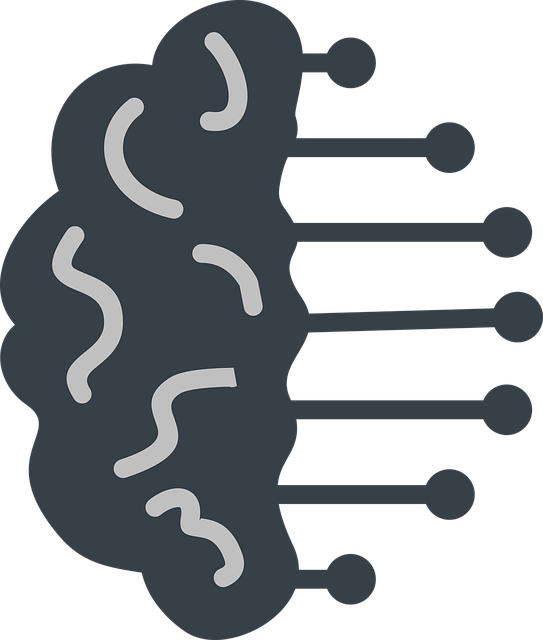
Chart Your Path: Essential Software Developer Roles to Explore in 2024
Jun 20, 2024Chart Your Course: Software Developer Roles to Consider in 2024
In the ever-changing world of tech, few careers offer as much flexibility and opportunity as that of a software developer. The path to becoming a software developer can go many ways, including getting a degree, online programs, and building a portfolio to attract employers. Imagine you’re at a fork in the road, with many paths to choose from in your career journey. Each one will have its own set of challenges and rewards, but how do you choose the right one? This isn’t just about where you’ll work next; it’s about shaping your future in a field that’s changing the way we live and interact with the world. Whether you’re just starting or looking to switch in your career, knowing the essential software developer roles can open doors you never knew existed. From crafting the user experiences of front-end development to digging into the logic of back-end systems, the roles in software development are as many as they are powerful. Each role requires a different set of skills and offers a different piece of the tech puzzle. So, let’s chart our course through these key roles and help you find the one that’s right for you and your aspirations.
Front-End Developer: User-Friendly Interfaces

As a front-end developer, you’ll focus on creating user-friendly interfaces. You’ll take design concepts and turn them into functional websites or applications that users can use. This role requires strong knowledge of HTML, CSS and JavaScript as well as technical design skills. In today’s digital world where user experience is key, front-end developers are vital to any software project. By using their skills and expertise they ensure websites and applications are visually appealing, responsive and easy to use. One of the main responsibilities of a front-end developer is to work closely with designers to bring their vision to life. They work together to implement the design elements while considering accessibility and cross-browser compatibility. Front-end developers also optimize websites for speed and performance so users have a smooth browsing experience.
Back-End Developer: Building the Systems Behind the Scenes

While front-end developers focus on the user-facing aspects of software development, back-end developers work behind the scenes to build the systems that power these applications. They handle server-side logic and make sure data is stored securely and efficiently. Back-end developers also upgrade and improve existing software to add new features and functionality. Back-end development involves working with languages like Python, Ruby, Java or PHP to create server-side scripts and APIs (Application Programming Interfaces). These scripts enable communication between different parts of an application or between multiple applications. A back-end developer’s role goes beyond just writing code; they also need to understand databases and data modeling. They design database schemas and optimize queries for data retrieval. Security is another key aspect of back-end development since it involves handling user data. Back-end developers implement security measures like encryption protocols and authentication mechanisms to protect data from unauthorized access.
Full-Stack Developer: The Bridge Between Front-End and Back-End

If you like both front-end and back-end development then becoming a full-stack developer might be the way to go. Full-stack developers have a broad skill set that allows them to work on both the client-side and server-side of an application. A full-stack developer is knowledgeable in front-end technologies like HTML, CSS and JavaScript as well as back-end technologies like databases, server-side scripting languages and APIs. They are also involved in the software development life cycle which includes planning, testing, analysis and documentation. They have a complete understanding of the software development process and can take on multiple roles in a project. Being a full-stack developer has many advantages. You can work on different parts of an application which keeps your work interesting and varied. Full-stack developers are also in high demand in the job market since they can contribute to all aspects of software development.
Mobile Developer: Apps for On-the-Go Users

In this mobile-first world, mobile developers are building applications for users on-the-go. Mobile developers specialise in building native or cross-platform applications for iOS or Android devices. They develop applications for different operating systems and ensure compatibility and performance across multiple platforms. To be a mobile developer you need to have a good understanding of programming languages like Swift or Objective-C for iOS development and Java or Kotlin for Android development. You also need to be familiar with mobile app frameworks like React Native or Flutter. Mobile developers design user interfaces that are optimized for smaller screens and ensure performance across different devices. They use device specific features like GPS, camera access or push notifications to enhance the overall user experience.
DevOps Engineer: Development and Operations

As software projects become more complex and require more frequent updates, DevOps engineers are the bridge between development and operations through software engineering practices. DevOps is a combination of practices that bridges the gap between software development (Dev) and IT operations (Ops). DevOps engineers automate tasks like code deployment, infrastructure provisioning and testing. They use tools like Jenkins, Docker or Kubernetes to create a continuous integration and delivery pipeline. By automating these processes DevOps engineers enable faster development cycles and ensure software systems are stable and reliable.
Besides automation, DevOps engineers also focus on collaboration between development teams and operations teams. They facilitate communication and a culture of continuous improvement to deliver quality software products.
Data Scientist: Extracting Insights from Big Data

With the explosion of data in this digital age, data scientists with strong analytical skills are priceless in extracting meaning from massive amounts of information. Data scientists use statistical analysis, machine learning algorithms and predictive modeling to uncover patterns and trends that can drive business decisions. To be a data scientist you need a solid foundation in mathematics, statistics and programming languages like Python or R. You also need to be familiar with data manipulation and visualization tools like SQL or Tableau. Data scientists work with stakeholders to identify business problems that can be solved using data-driven approach. They collect, clean and analyze large datasets to derive actionable insights. These insights help organizations make informed decisions to optimize processes or improve customer experience.
Machine Learning Engineer: Building AI Applications

Machine learning engineers build algorithms and models that enable machines to learn from data without being explicitly programmed. A strong computer science background is required for machine learning engineers as it provides the foundation for this field. They build intelligent systems that can make predictions or take actions based on patterns in large datasets. To be a machine learning engineer you need a strong background in mathematics, statistics and programming languages like Python or Java. You also need to be familiar with machine learning frameworks like TensorFlow or PyTorch. Machine learning engineers work with data scientists to implement machine learning models into production systems. They optimize these models for performance and scalability and ensure they remain accurate over time. Machine learning engineers power various AI applications like recommendation systems, fraud detection algorithms or autonomous vehicles.
Quality Assurance (QA) Engineer: Software Reliability

Quality assurance engineers ensure software products are quality and reliable. QA engineers work with software developers to ensure software is reliable. They design and execute test plans, find bugs or issues and work with development teams to fix them. QA engineers have a deep understanding of testing methodologies, tools and frameworks. They create test cases, do functional and regression testing and document defects found during testing. They also do performance testing to ensure software applications can handle high loads without performance degradation. By testing software products thoroughly QA engineers maintain quality throughout the development lifecycle. Their efforts lead to bug free applications that meet user expectations.
Cybersecurity Specialist: Securing Systems

As technology advances so do the threats that target software systems. Systems software developers create and manage software used in network distribution, database, game and web development and play a big role in securing these systems. Cybersecurity specialists protect these systems from attacks or unauthorized access. Cybersecurity specialists have in-depth knowledge of security protocols, encryption algorithms, network security principles and vulnerability assessment techniques. They find vulnerabilities in software systems and implement countermeasures.
In addition to securing software applications, cybersecurity specialists also educate users on online safety best practices. They create security policies and procedures to help organizations keep their digital assets secure.
Conclusion: Choose Your Software Development Path

In conclusion, software development has many exciting career paths for aspiring professionals. Most software developers share common responsibilities and traits like problem solving skills, attention to detail and ability to work collaboratively. Whether you choose to specialize in front-end development, back-end development, mobile development, DevOps engineering, data science, machine learning engineering, quality assurance engineering or cybersecurity - each role has its own challenges and opportunities. By understanding these software developer roles and their responsibilities you can chart your path to a successful career in this field. Consider your interests and strengths while exploring these roles to find the one that fits your goals. Remember continuous learning is key in software development. As technology advances new roles and opportunities will emerge. Stay curious, adapt and never stop exploring the many possibilities in software development.
Stay connected with news and updates!
Join my mailing list to receive the latest news and updates from me.
As a privacy advocate myself, I care about digital privacy and will never resell your data to third parties.
